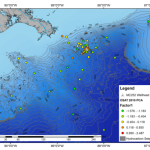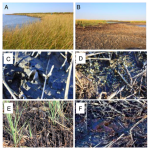Last week, Dr. M and I attended a captivating lecture at Duke university, delivered by none other than the honorable William K. Reilly (co-chair of the National Oil Spill Commission investigating the BP oil spill).
Reilly was very well spoken, knowledgeable, and provided an interesting perspective on the Gulf disaster.
Some of the facts he provided were shocking: Because of the gushing oil, 40,000 Vietnamese fisherman were put out of work and reduced to standing in line for $100 food coupons. Hotel occupancy in the Gulf was at 30% last memorial day weekend as scared tourists stayed away. Europeans were canceling vacations to Key West despite the oil never getting close.
Reilly’s overarching view after the government’s inquiry was disbelief at this ‘culture of complacency’ which seems to pervade the oil industry. The two central mistakes at the Macondo well–Halliburton supplying faulty cement and Transocean failing to catch it–were “truly aggregious” in his mind. As the report to the president mentions, the gulf oil spill was “not the rogue blunder of a large company, but bad decisions made by 3 companies”.
This systematic industry problem, what he called a ‘culture of complacency’ , resulted in sloppy working practices with fatal consequences. The Oil Spill Commission tested Halliburton’s cement formula NINE times in the lab, and it failed EVERY time.
Overall, Reilly thought that President Obama responded well to the spill. However, he gave him an ‘F’ grade in period leading up to April 20th and a ‘D’ for the first 3 weeks spent using an incorrect flow rate. After that, an ‘A’ for figuring out how much oil was gushing and organizing a better response effort. Through this, the academic community was very important, and there were 47,000 people cleaning up the beaches—in the end, the country came together with a unifying response to catastrophe.
Reilly also called dispersants “A cosmetic solution to problem–out of sight, out of mind”. He was very skeptical when they were suggested for the BP spill (having vetoed their use during the Valdez), but eventually seceded because the oil would have been uncontrollable if all of it had reached the surface. Reilly was also shocked at how little our cleanup technology had progressed in 20 years—how we shouldn’t be having ANY conversation about dispersant toxicity, how we should have developed more effective skimmers for use in open waters. Again, he blamed these problems on a pervasive complacency since the Exxon Valdez; so much profit in the industry, yet so little money has been spent on technological advancement.
In the wake of any disaster, there are questions. Reilly said we NEED to ask those questions, because there are so many important things in the Gulf–fishing, tourism, oil. We gave a very large priority to the one (oil) that made the most money. But, we need to pay attention to more than money in order to preserve our long-term needs. We need to find a way to use less oil–we can’t do it in one year, but we can do it.
Addendum: You may have noticed that I’ve ceased the ‘Oil Spill Sunday Roundups’–this has mostly been due to travel commitments, but also because there is less and less coverage in the media. DSN will still bring you the latest scientific findings related to the Gulf spill, but alas, the news summaries will cease for now.






It sounds like an interesting lecture, although it’s rather depressing to think that despite all the fuss at the time, the Exxon Valdez spill apparently failed to not fundamentally change (either by choice or coercion) attitudes to safety within the industry, or even prompt some investment in better cleanup technology. Will it be any different this time around – or will we be having the same conversation the next time there’s a catastrophic oil spill?
Good post! Did you mean “acceded” instead of “seceded”?
Thanks for this interesting summary. I’m a M.S. student in Hydrogeology and work in cleaning up petroleum spills in groundwater, not the ocean. Sadly, I’m not as shocked as Reilly that the clean-up technology has not progressed since Valdez – where is the research money to examine topics like dispersant toxicity? In my experience, the U.S. government isn’t funding research into petroleum clean-up. I agree that oil companies appear complacent since large spills are uncommon, but I would suggest that the U.S. government, and other funding agencies, are complacent as well.